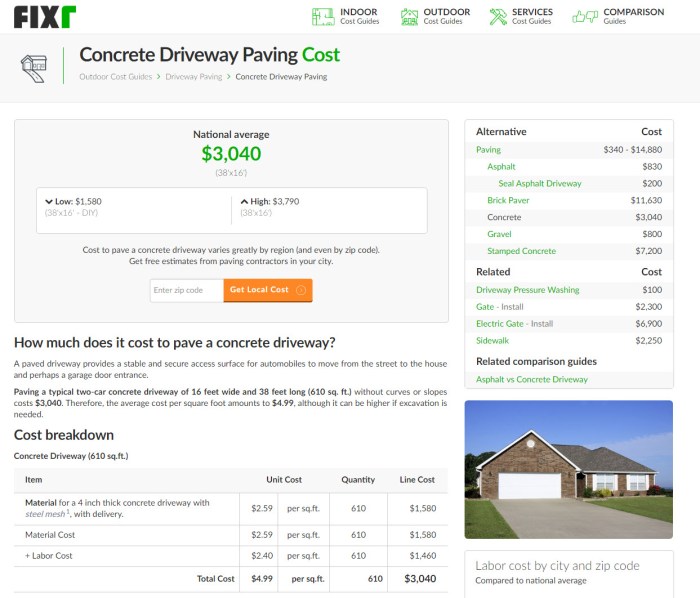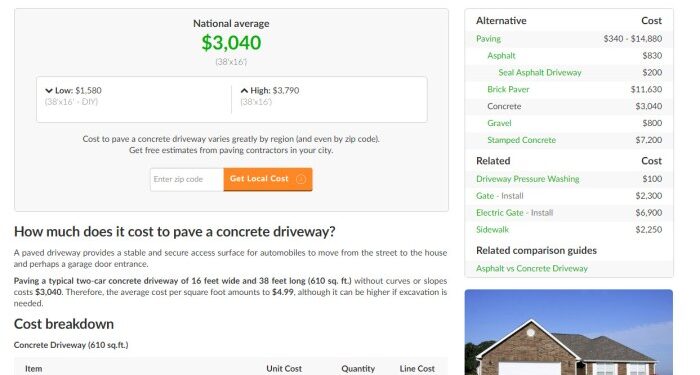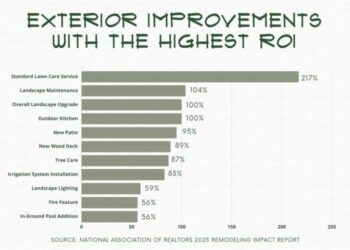Embark on a journey through the world of driveway gate cost estimation, where every material choice and design detail plays a crucial role in determining the final price. From basic swing gates to high-tech automated systems, the cost spectrum is vast and intriguing.
Let's dive in and explore the factors that shape the pricing landscape of driveway gates.
Factors affecting driveway gate cost estimation
When estimating the cost of a driveway gate, several factors come into play that can significantly impact the overall price. It is essential to consider these factors to ensure an accurate estimate and to make informed decisions based on your budget and preferences.
Materials
Different materials used for driveway gates can have a substantial effect on the cost. Common materials include:
- Steel: Known for its durability and strength, steel gates are usually more expensive due to the material's quality and longevity.
- Aluminum: A lightweight and corrosion-resistant option, aluminum gates are typically more affordable than steel but may require more frequent maintenance.
- Wood: Wooden gates offer a classic and elegant look, but the cost can vary depending on the type of wood used, such as cedar or redwood.
Gate Size and Design
The size and design of the driveway gate also play a significant role in determining the cost. Larger gates or custom-designed gates often come with a higher price tag due to the additional materials and labor required for installation. Intricate designs or ornate details can also increase the overall cost of the gate.
Additional Features
Incorporating additional features like automation systems, security cameras, intercoms, or access control systems can add to the total cost of the driveway gate. These features not only enhance convenience and security but also require specialized equipment and installation, contributing to the overall price.
Types of Driveway Gates and Their Cost Range

When it comes to driveway gates, there are several types available, each with its own unique features and cost implications. Understanding the different types and their cost ranges can help you make an informed decision when planning for your driveway gate installation.
Swing Gates
Swing gates are a popular choice for residential driveways, offering a classic look and ease of operation. The average cost range for a manual swing gate is between $800 to $2500, while an automated swing gate can cost between $2500 to $10000, depending on the materials and features.
Sliding Gates
Sliding gates are ideal for properties with limited space as they operate by sliding horizontally along a track. The cost range for a manual sliding gate is typically between $1500 to $5000, whereas an automated sliding gate can range from $4000 to $15000.
Bi-Fold Gates
Bi-fold gates are a space-saving option that fold in on themselves when opening and closing. The average cost range for a manual bi-fold gate is between $2000 to $6000, while an automated bi-fold gate can cost between $5000 to $18000.
Comparison between Manual and Automated Gates
Automated gates generally cost more than manual gates due to the added technology and convenience they offer. However, the upfront cost of automation can be offset by the increased security and ease of use provided by automated gates.
Premium Options: Ornamental Iron Gates
Ornamental iron gates are a popular choice for homeowners looking to add a touch of elegance and sophistication to their property. The cost of ornamental iron gates can vary widely depending on the design, size, and customization options, with prices ranging from $3000 to $20000 or more.
Installation costs and considerations
When it comes to installing a driveway gate, there are various factors that can impact the overall cost. Let's delve into the typical installation process and the breakdown of costs involved.
Installation Process for Driveway Gates
- Site Assessment: The first step involves assessing the site where the driveway gate will be installed. This includes checking for any obstacles, terrain complexity, and existing structures that may affect the installation.
- Gate Selection: Once the site assessment is complete, the next step is selecting the type and style of driveway gate that best fits the aesthetic and functional requirements.
- Preparing the Site: Before installation can begin, the site needs to be prepared by clearing the area and ensuring a level foundation for the gate.
- Installation: The actual installation involves setting up the gate, posts, hinges, and any necessary automation systems.
- Testing and Adjustment: Once the gate is installed, it should be tested to ensure smooth operation. Any necessary adjustments should be made at this stage.
Breakdown of Installation Costs
- Labor Costs: Labor costs typically make up a significant portion of the installation expenses. This includes the wages of the installers and the time required to complete the installation.
- Equipment Costs: Depending on the complexity of the installation, specialized equipment may be needed, such as digging equipment or welding tools.
- Permit Costs: Some areas may require permits for installing a driveway gate, which can add to the overall installation costs.
Additional Factors Impacting Installation Expenses
- Terrain Complexity: Installing a driveway gate on uneven or sloped terrain may require additional work, such as leveling the ground or building retaining walls.
- Existing Structures: If there are existing structures like fences or walls that need to be integrated with the driveway gate, additional costs may be incurred for modifications.
Maintenance and repair expenses
Regular maintenance is essential for keeping your driveway gate in top condition and avoiding costly repairs down the line. By performing routine maintenance tasks, you can prolong the lifespan of your gate and ensure it functions smoothly for years to come.
Common Maintenance Tasks
- Regular cleaning to remove dirt, debris, and corrosion buildup
- Lubricating moving parts such as hinges, rollers, and tracks
- Inspecting for loose bolts or screws and tightening them as needed
- Checking the gate's alignment and adjusting if it is off track
Impact of Regular Maintenance
Regular maintenance not only helps prevent major issues but also reduces the overall cost of ownership in the long run. By addressing minor problems early on, you can avoid more extensive repairs that could be costly. Additionally, well-maintained gates are less likely to suffer from wear and tear, increasing their longevity.
Repair Costs
Repair costs for driveway gates can vary depending on the extent of the damage and the type of repair needed. Common repair expenses include:
- Motor failure: Replacing a malfunctioning gate motor can range from $300 to $1,500, depending on the motor type and complexity of the installation.
- Weather damage: Repairing gates damaged by weather conditions such as rust or warping can cost anywhere from $200 to $1,000, depending on the extent of the damage.
- Electrical issues: Fixing problems with the gate's electrical components, such as wiring or sensors, can range from $100 to $500, depending on the complexity of the system.
Regular maintenance can help prevent some of these common repair issues, ultimately saving you money in the long term.
Conclusion

As we conclude this exploration of driveway gate cost estimation, it becomes evident that the choices made in material, design, and features have a significant impact on the overall expenses. Whether opting for a simple manual gate or a sophisticated automated one, understanding the nuances of installation and maintenance costs is key to making an informed decision.
Query Resolution
What are the common materials that can affect driveway gate cost?
Materials such as wrought iron, aluminum, wood, and steel can impact the cost of driveway gates due to differences in durability and aesthetic appeal.
How does gate size influence the overall cost estimate?
Gate size directly correlates with material requirements and labor costs, making larger gates more expensive to install compared to smaller ones.
What are the typical maintenance tasks required for driveway gates?
Regular tasks include lubricating hinges, inspecting for rust or damage, and ensuring proper functioning of automation systems if present.














